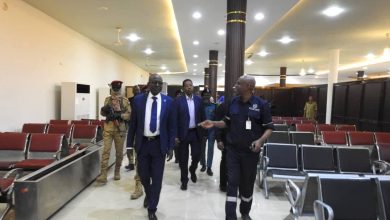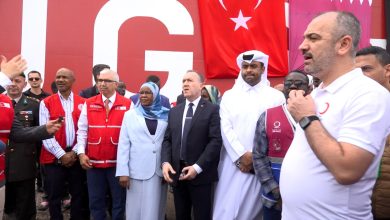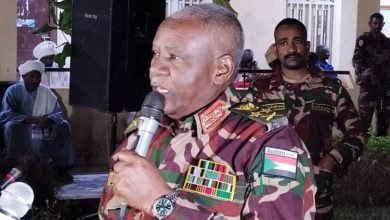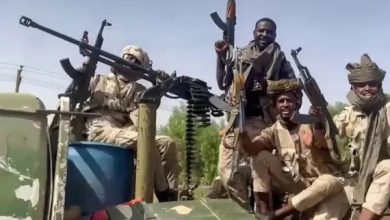Jeddah Negotiations…Barricades on the Path to Peace
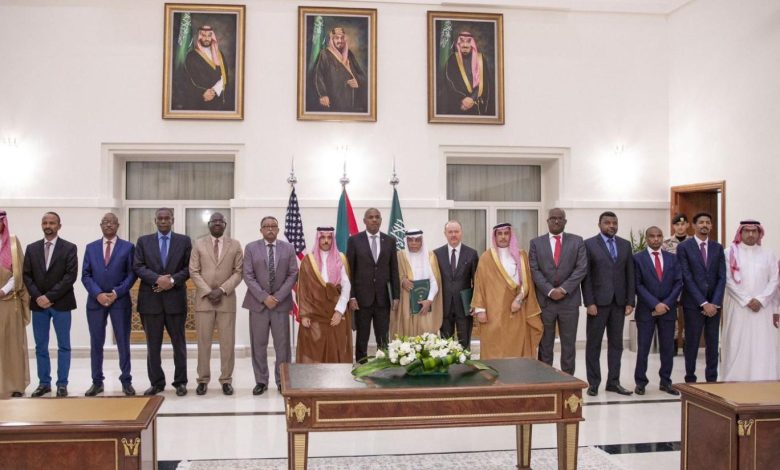
Sudan Events – follow-ups
A few days after the outbreak of the April 15 war in Sudan, the Kingdom of Saudi Arabia and the United States of America intervened in an effort to resolve the conflict between the Sudanese army and the Rapid Support Forces (RSF) Militia and turn the page on the war. The efforts of Riyadh and Washington succeeded in convincing the army and the militia to engage in negotiating rounds in the city of Jeddah, Saudi Arabia. The negotiations concluded in last May announced the signing of an agreement in Jeddah, but it did not last due to the failure of the RSF Militia to implement the most important provisions contained in it.
Negotiation terms:
The Kingdom of Saudi Arabia and the United States of America announced at the time of signing of a short-term ceasefire agreement and humanitarian arrangements between representatives of the Sudanese Armed Forces and the RSF in the city of Jeddah.
The President of the Sovereign Council and Commander-in-Chief of the Army, Lieutenant General Abdul Fattah Al-Burhan, confirmed their commitment to the Jeddah platform, but the other party must implement what was agreed upon in accordance with what was signed in Jeddah.
Al-Burhan said while addressing the officers, non-commissioned officers and soldiers of the Omdurman Military District, that the armed forces have no problem with negotiation, but how does this process take place and in what form? He added: “As long as the war continues, we will not negotiate, and as long as there is an occupation of citizens’ homes and the cities of El Geneina, Nyala, Zalingei, Khartoum, El Daein, and Gezira”, We will not negotiate,” he added, saying: “If the rebels wish to negotiate, they must first remove their forces outside these cities and gather them in specific areas.”
Provisions of Agreement:
Below is the text of the Jeddah Agreement signed between the Army and the RSF last May:
We, the Sudanese Armed Forces and the Rapid Support Forces, referred to below as both parties, reaffirm our commitment to the sovereignty, unity and territorial integrity of Sudan, and reaffirm our commitments to the principles stipulated in the Jeddah Declaration for the Protection of Civilians in Sudan signed on May 11, 2023, and recognizing that the conflict in Sudan threatens civilian life and the long-term economic and social stability of the country, Recognizing further the severe impact of the conflict on civilians and the economy, which increases as it continues, Recognizing the need to strengthen the protection of civilians, Resolving to promote full respect for human rights and compliance with our obligations under international humanitarian law, Renewing our commitment to reaching a short-term ceasefire to facilitate the passage of humanitarian aid. We welcome the support and generosity of international donors in providing and delivering humanitarian aid to the Sudanese people, in accordance with international best practices and international humanitarian law, in cooperation with us. Accordingly, the following was agreed upon:
1. General provisions
a. The two parties agree that the goal of this agreement is to achieve a short-term ceasefire in order to facilitate the delivery of emergency humanitarian aid and the restoration of basic services.
b. The two parties hereby include the Jeddah Declaration (Commitment to Protect Civilians in Sudan) as a reference, and reaffirm all obligations contained therein, including the obligation to evacuate, refrain from repossessing, respect and protect all public facilities such as medical facilities, hospitals, water and electricity facilities, and refrain from using them for military purposes.
c. This Agreement shall enter into force as soon as it is signed by the Parties. The short-term ceasefire period shall begin forty-eight (48) hours after the signing and entry into force of this Agreement.
d. The Parties may agree to renew or update this Agreement for additional periods, and to renew this Agreement:
The Monitoring and Coordination Committee shall be notified, not later than (48) hours prior to the expiration of this Agreement, that the Parties are prepared to agree to the renewal, and propose updates (in the event of renewal)
The parties may renew this agreement for an agreed upon period.
The Agreement may be extended for additional periods by the same procedure.
This Agreement shall terminate if not renewed.
2/ Short-term ceasefire:
a. The two parties agree to a short-term ceasefire, stipulated in this agreement, to take effect forty-eight (48) hours after this agreement enters into force. The two parties are committed to using the time between the entry into force of this agreement and the start of the short-term ceasefire period to do the following:
Inform their forces of the terms of this agreement
Directing their forces to comply with a short-term ceasefire
b. The calculation of the short-term ceasefire period shall begin forty-eight (48) hours after the signing of this Agreement and its entry into force, and shall remain in effect thereafter for a period of seven (7) days.
c. Each Party will implement this Agreement fully and in good faith and will ensure that all forces under its command and control comply with this Agreement at all times and in full.
d. A short-term ceasefire applies throughout Sudan.
e. The two parties shall inform the civilian population of the short-term ceasefire through publications, radio and all possible means of communication. Both parties shall provide accurate information regarding the short-term ceasefire to the media.
f. During the short-term ceasefire period, the parties will guarantee the freedom of movement of civilians throughout the country and protect them against violence, harassment, recruitment, or other violations.
g. The Parties shall warrant that all forces under their control cease and desist from the following prohibited acts, which constitute a violation of this Agreement:
All violations and breaches of international human rights law and violations of international humanitarian law.
Attacks and hostilities, including sniper attacks.
Air attacks and the use of military aircraft, drones or any heavy weapons.
Shooting any civilian aircraft or humanitarian aid carrier.
Torture or other cruel, inhuman or degrading treatment, including sexual and discriminatory violence in all its forms.
Targeting civilian infrastructure or population centers.
Obtaining or strengthening defenses, resupplying, or distributing weapons or military supplies, including from foreign sources.
Attempts to occupy new territories or locations, including civilian infrastructure or population centers.
Movement of forces, weapons or resources, except as provided for in the permitted actions contained in this Agreement.
Recruiting, registering or mobilizing soldiers.
Harassment, attacks, hostage-taking or unlawful detentions of civilians, including humanitarian workers.
Looting or confiscating property, resources or humanitarian supplies.
Restricting or impeding the movement of civilians, including humanitarian workers and humanitarian aid materials.
Threatening to use force or inciting violence.
Obstructing any monitoring or verification of the short-term ceasefire.
Espionage activities by air, land or sea
Using civilians as human shields.
Occupying hospitals and basic infrastructure facilities, including water, electricity and fuel facilities.
Occupation of civilian homes.
Use of medical transport, such as ambulances, for military purposes.
Forced disappearance or arbitrary detention of people.
Looting, plundering and vandalism.
Using propaganda or incitement against either party or using any tribal or ethnic groups.
Using official communication channels to spread disturbing, false, or misleading information about the short-term ceasefire.
Withholding information from persons deprived of their liberty or access to them by humanitarian organizations.
h. The parties may perform the following permitted acts:
Facilitating repair and restoration activities for basic services and infrastructure such as electricity, water and communications facilities.
Medical evacuation and transportation of unarmed individuals in need of medical care.
Supply of non-combat materials, such as food, water, medicines, fuel, lubricants, stationery, clothing and related administrative needs and movements, within the areas of control of the parties concerned.
Facilitating humanitarian work, through the flow of humanitarian and relief aid in accordance with agreed upon regulations
i. The two parties remain committed to the terms and obligations of this agreement until the end of the short-term ceasefire.
j. The two parties agree to a short-term ceasefire in their location, when the short-term ceasefire enters into force.
k. In the event that the forces of both parties are in direct contact or along certain humanitarian corridors, the two parties shall disengage their forces, and the forces of the two parties that are in direct contact shall cease firing and place themselves in a defensive position.
3/ Humanitarian arrangements
a. The two parties adhere to the obligations and principles of the Jeddah Declaration in all their actions, which is an integral part of this agreement, while recognizing that the parties have existing obligations to respect international humanitarian law and international human rights law, and the provisions contained in this agreement shall seek to strengthen and complement them.
b. The Parties shall, in accordance with the Jeddah Declaration, create conducive conditions for the provision of emergency relief and provide security guarantees for safe and unhindered access of humanitarian agencies.
c. The Parties shall secure and provide free passage and unhindered road access along designated corridors or routes for the delivery of humanitarian assistance.
d. The parties commit to ensuring that humanitarian access continues to be free, urgent and unimpeded, including access to relevant facilities for infrastructure repair and basic civilian services, and not to impede the flow of humanitarian assistance from within Sudan or across the border to affected populations.
e. Both parties are committed to ensuring the safety and protection of humanitarian workers, their equipment and their property.
f. Both parties shall be committed to protecting and securing humanitarian aid against plunder, theft, corruption and sabotage.
g. The Parties shall take comprehensive measures to ensure the movement and protection of humanitarian convoys, including ensuring their safety without interference with the work of humanitarian actors.
h. Both parties shall adhere to the principles and spirit of international humanitarian law when implementing a short-term ceasefire.
i. The Parties shall provide the International Committee of the Red Cross with relevant information on all detainees and prisoners arrested or detained as a result of the conflict and to enable it to carry out its work.
4/ Committee for Monitoring and Coordination of Short-Term Ceasefire and Humanitarian Aid:
a. The two parties agree to establish a committee to monitor and coordinate the short-term ceasefire and humanitarian aid (Monitoring and Coordination Committee) to monitor adherence to the short-term ceasefire and adherence to this agreement.
b. The Monitoring and Coordination Committee consists of three (3) representatives of each of the facilitating parties to this agreement (the Kingdom of Saudi Arabia and the United States of America) and three (3) representatives of each party. The Parties shall appoint their representatives and share their names with the Kingdom of Saudi Arabia and the United States of America upon signing this Agreement.
c. The Monitoring and Coordination Committee shall maintain regular and direct contact with the SAF and RSF leadership and designated focal points on all coordination work necessary to implement short-term ceasefire and humanitarian assistance.
d. The Monitoring and Coordination Committee shall receive communications from the Sudanese Armed Forces, the Rapid Support Forces, the Kingdom of Saudi Arabia, the United States and international humanitarian actors working in Sudan (the United Nations Office for the Coordination of Humanitarian Affairs and the International Red Cross) regarding violations of the short-term ceasefire or any behavior that may jeopardized short-term ceasefires or provisions for humanitarian aid, including by actions of other parties.
e. The Monitoring and Coordination Committee will hold its meetings – in person or virtually – for the purposes of coordination, exchanging information, and dealing with accusations of violations, and it will have an internal bylaw to organize its work.f. The Monitoring and Coordination Committee shall provide a platform for receiving complaints and resolving disputes related to allegations of violations. It does everything possible to verify or confirm these allegations of violations, identify the parties involved in any violations, and mediate disputes or disagreements between the two parties.
g. In the event that the Monitoring and Coordination Committee determines that there has been a breach or violation of the provisions of this Agreement, the Committee shall determine the appropriate procedures, which include (but are not limited to):
Notify the party who committed or is accused of committing the violation.
Publicly identify the party who committed the violation
Demanding accountability for perpetrators of violations, especially serious crimes and violations.
h. The Monitoring and Coordination Committee shall assist in facilitating coordination with relevant humanitarian actors, including the United Nations Office for the Coordination of Humanitarian Affairs and the International Red Cross, in making the necessary arrangements for immediate, full and unimpeded humanitarian access and the repair of basic civilian infrastructure and services, including, but not limited to:
Ensure that all actors respect international humanitarian law.
Ensuring the protection of civilians and their freedom of movement.
Ensure full respect by all actors for the humanitarian principles of humanity, neutrality, impartiality and independence.
Ensure full, safe and unhindered movement of all humanitarian organizations, civil society groups, and community-based organizations into the short-term ceasefire area, to enable them to provide timely assistance based on the needs of those affected by the conflict and to repair infrastructure and basic services.
Maintain and enable focal points for each party, with focal points being the main points of contact for humanitarian operations and coordination.
Ensure protection while respecting the neutrality of humanitarian action for humanitarian personnel, resources, location of operations, and corridors as appropriate and requested.
Removing any bureaucratic or security obstacles to humanitarian access and action to allow for rapid and effective humanitarian action and the repair of basic services.
Ensure unhindered humanitarian access to allow for its safe resumption and repair of civilian infrastructure and basic services.
Uphold obligations towards displaced persons, as well as respect for refugees, under international law, and implement appropriate measures to ensure the protection and safety of all refugees in Sudan.
It was signed in Jeddah on May 20, 2023, facilitated by the Kingdom of Saudi Arabia and the United States of America.
Naval Admiral Staff/ Mahjoub Bushra Ahmed Rahma/ Brigadier Staff/ Omar Hamdan Ahmed Hammad
Sudanese Armed Forces/Rapid Support Forces
